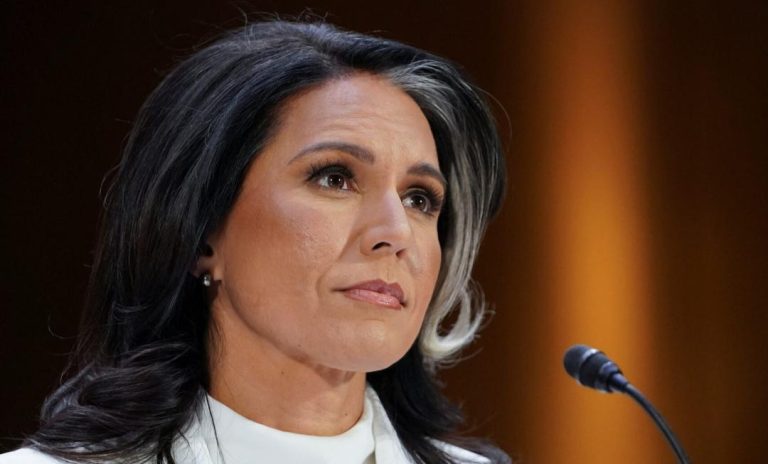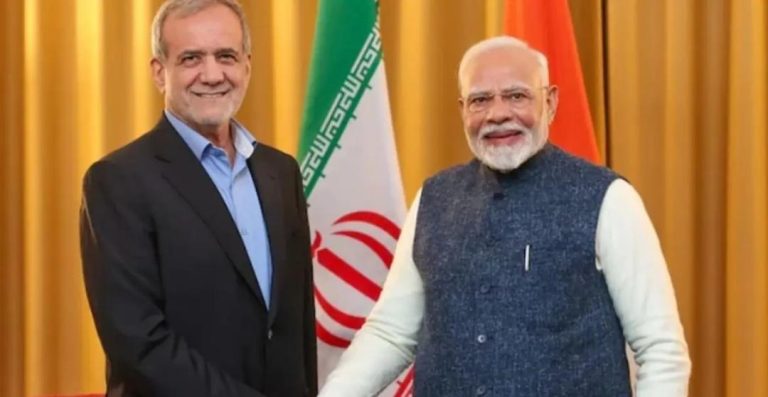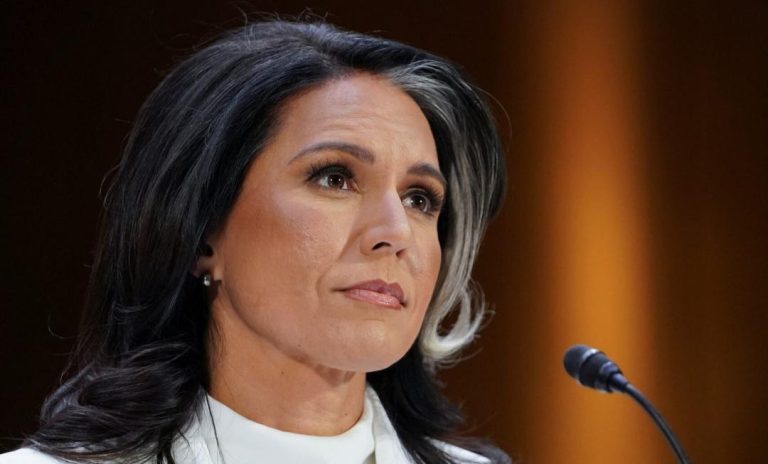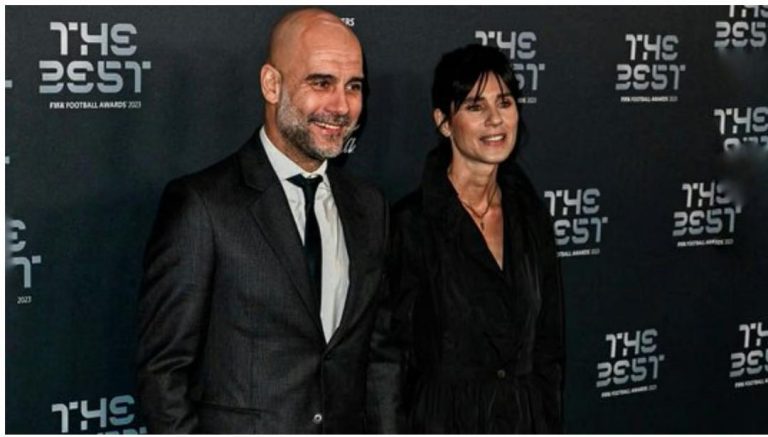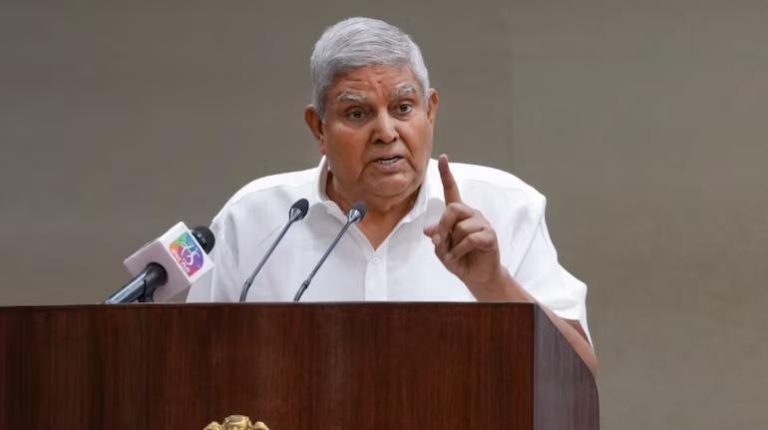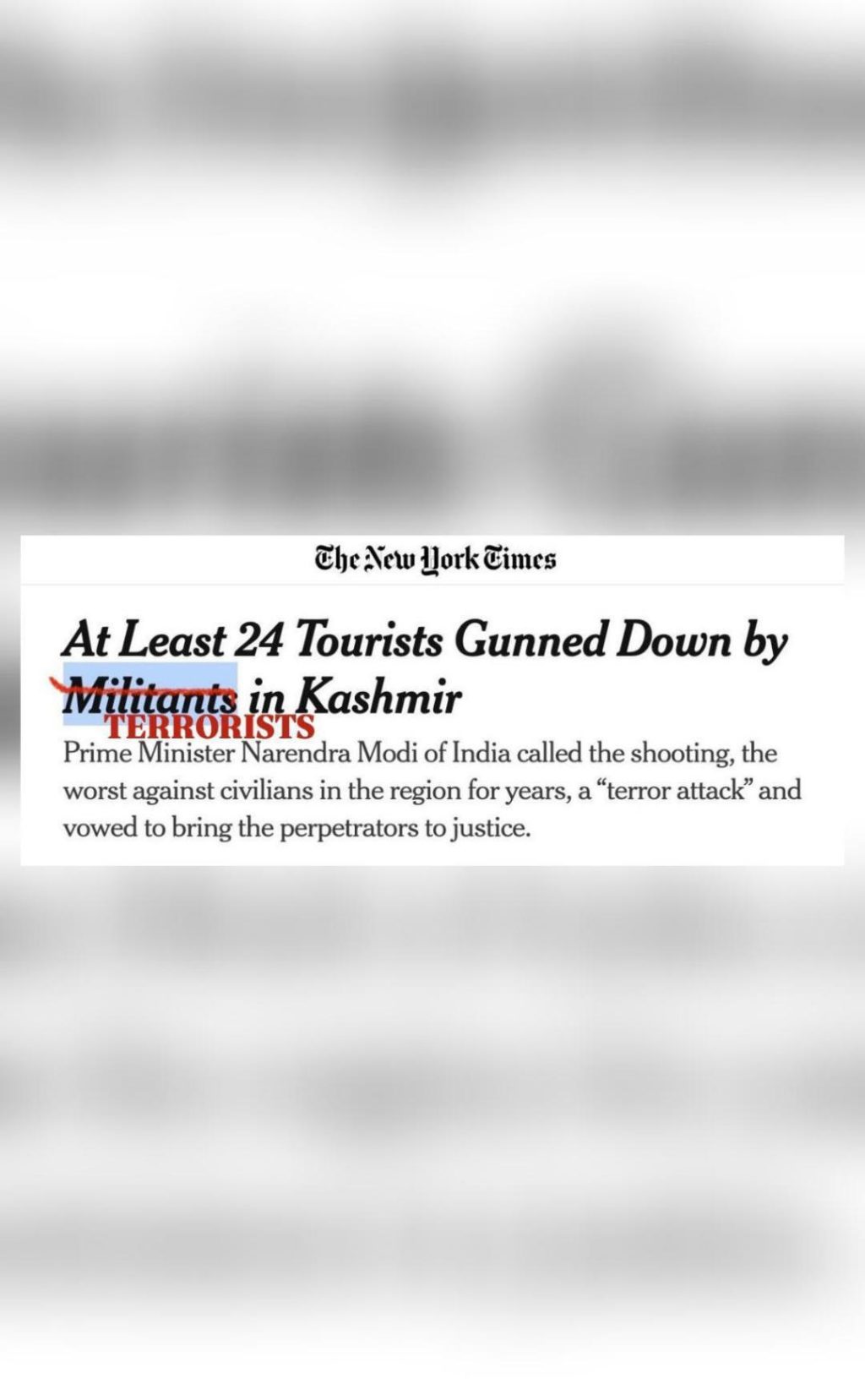
Hey NYT, fixed it for you: US committee after news portal calls J&K terrorists ‘militants’
In a recent tweet, the US House Committee on Foreign Affairs shared a screenshot of a New York Times article, which had referred to terrorists behind an attack in Jammu and Kashmir’s Pahalgam as “militants”. The tweet, which quickly went viral, was met with a mix of shock and outrage from many who felt that the term “militant” was a euphemism for terrorists. The tweet read: “Hey NYT, we fixed it for you… This was a TERRORIST ATTACK plain and simple… Whether it’s India or Israel, when it comes to TERRORISM, NYT is removed from reality.”
The tweet was accompanied by a screenshot of the New York Times article, which mentioned that a group of “militants” had attacked a tourist bus in Pahalgam, killing three people and injuring several others. The article did not provide further details about the attackers or their affiliations, but the use of the term “militants” was seen as a watering down of the severity of the attack.
The US House Committee on Foreign Affairs, which is a Republican-controlled committee, was quick to point out the perceived bias of the New York Times in its reporting. The tweet was met with widespread support from many who felt that the term “militant” was a euphemism for terrorists and that the New York Times was downplaying the severity of the attack.
The debate around the use of the term “militant” versus “terrorist” is not new. Many have argued that the term “militant” is a more neutral term that can be used to describe groups that are fighting for a political cause, while the term “terrorist” is often used to describe groups that engage in violence against civilians.
However, many others have argued that the term “militant” is often used as a euphemism for terrorists, and that it downplays the severity of attacks carried out by these groups. In the context of the attack in Pahalgam, the use of the term “militant” was seen as particularly egregious, as it did not acknowledge the fact that the attack was carried out by a group that has been linked to terrorist activities in the region.
The tweet from the US House Committee on Foreign Affairs sparked a wider debate about the role of the media in reporting on terrorism and conflict. Many have argued that the media has a responsibility to report on these issues accurately and without bias, and that the use of euphemisms such as “militant” can undermine this goal.
The debate also highlighted the importance of context in reporting on terrorism and conflict. In the case of the attack in Pahalgam, the lack of context about the attackers and their affiliations made it difficult for readers to understand the nature of the attack and the motivations behind it.
The incident also raises questions about the role of the media in reporting on sensitive issues such as terrorism and conflict. Many have argued that the media has a responsibility to report on these issues accurately and without bias, and that the use of euphemisms such as “militant” can undermine this goal.
In conclusion, the tweet from the US House Committee on Foreign Affairs highlights the importance of accuracy and context in reporting on terrorism and conflict. The use of euphemisms such as “militant” can undermine the goal of accurate reporting and can perpetuate biases and stereotypes about certain groups. It is essential that the media takes a nuanced approach to reporting on these issues, providing context and accurate information to help readers understand the nature of the attacks and the motivations behind them.
Source: https://x.com/HouseForeignGOP/status/1914843415793095043
